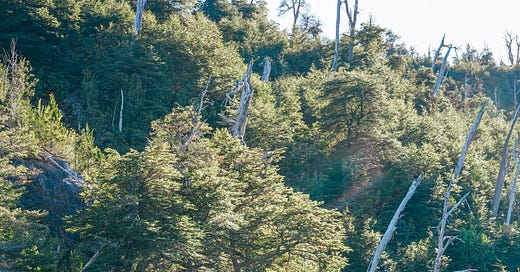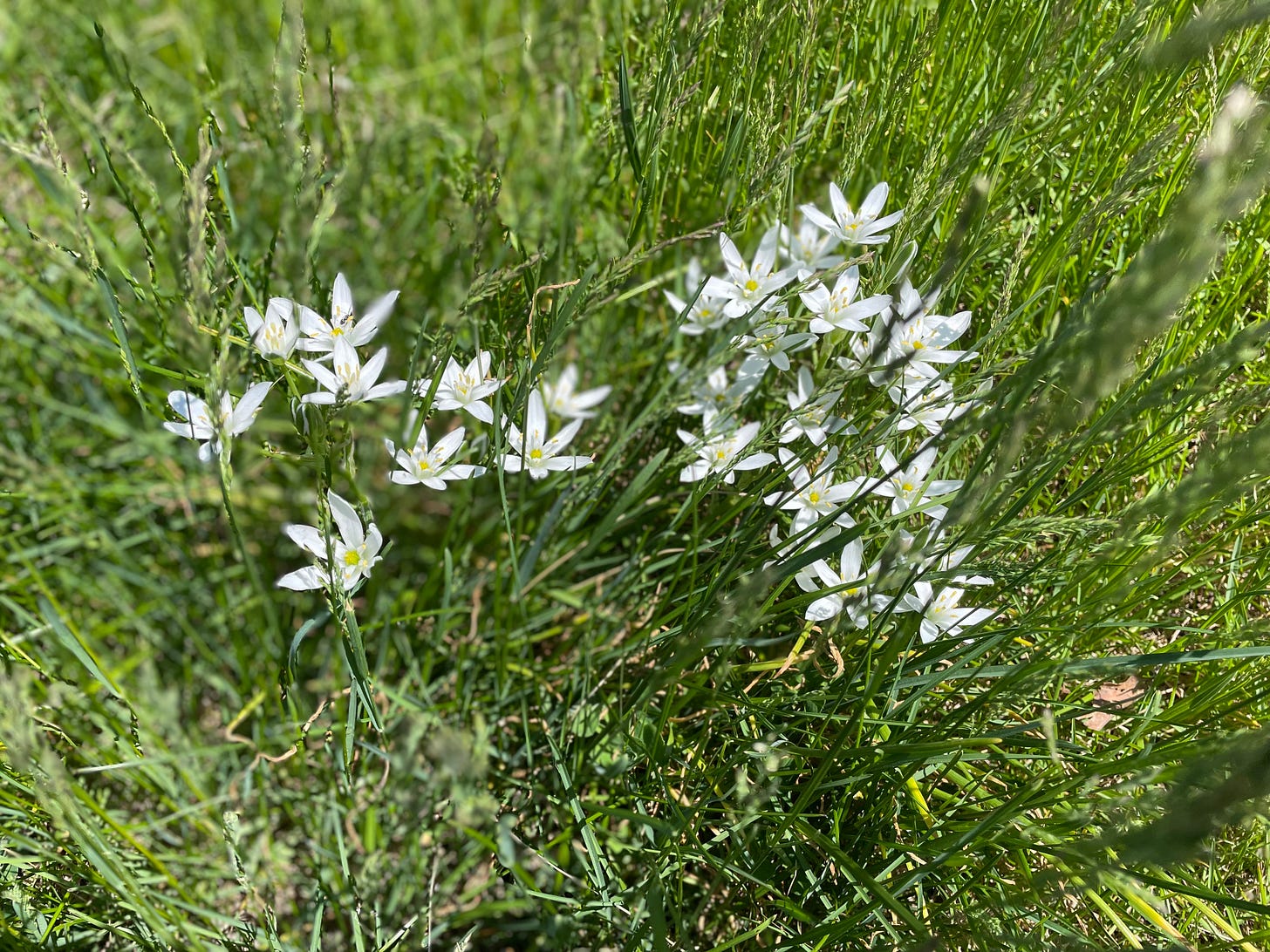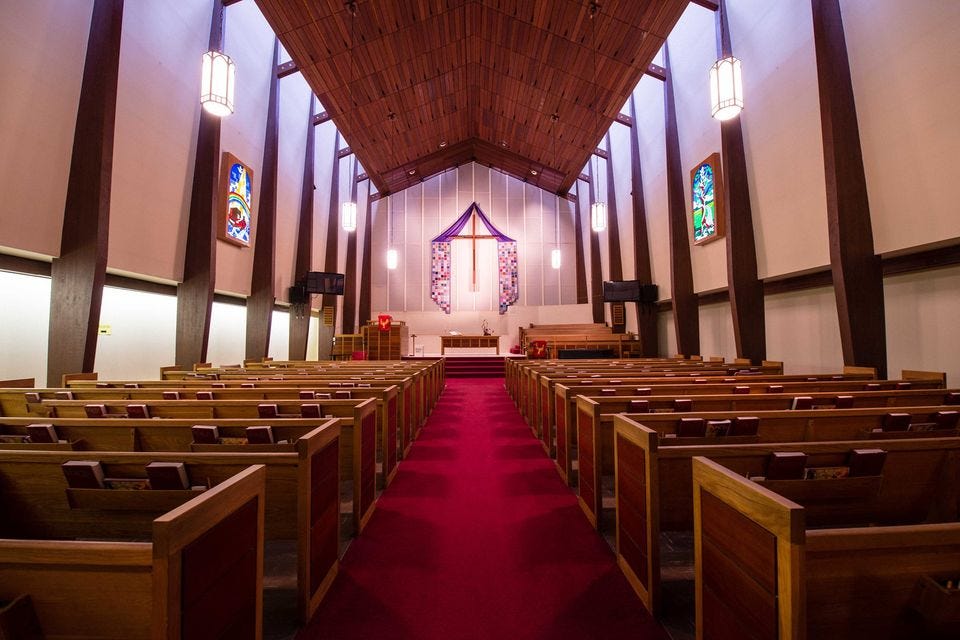Friday Notes - Seeking Refugia
Noticing the common theme of refugia through different aspects of my work this week; Friday quote by David Orr; Call to Action; Friday Five - 5 articles on refugia
Welcome! I am Jessica Hetherington, and this newsletter is about faith and climate action. You can subscribe by clicking here:
What I like to do in the short reflection I offer here on Fridays is look back on my own week, consider what has been occupying my mind and my hands, and consider what is relevant for all of us who are concerned about the climate crisis and responses required by people of faith. Sometimes the reflection is about something really specific, like last week’s post on heating my home with methane gas. This week, I am thinking about the relatively disparate things I have been working on:
I’m reading the book Refugia Faith by Debra Rienstra;
I have been asked to give a talk about eco-spirituality at the opening of the World Communion of Reformed Churches’ Decade for Climate Justice on June 5;
I have been doing research on pensions and climate change, and thinking about the fossil fuel industry’s responsibility to protect Canadian pensions; and
I have been preparing to preach this Sunday for Pentecost.
Besides all being in the general vein of faith and climate crisis, what do these four things have in common?
Perhaps they are all located inside the definition of the word in the title of Rienstra’s book, refugia. Refugia, in biological terms, are pockets of safety “where plants and creatures hide from destruction, hidden shelters where life persists and out of which new life emerges.”[1]
Rienstra takes this biological reality and develops it as a model, an extended metaphor to help us consider what healing for people and the Earth can look like in our time of climate emergency. She asks:
“How can people of faith become people of refugia? How can we find and create refugia, not only in the biomes of the earth, but simultaneously in our human cultural systems and in our spirits? We will need a tough, new kind of resilience of a greater capacity for cooperation. Is it possible to work together, applying all our love and creativity to this task as never before?”[2]
Rienstra identifies the aptness of the refugia model for interpreting the Christian Scriptures. “The refugia model calls us to look for the seed of life where we are, concentrate on protecting and nurturing a few good things, let what is good and beautiful grow and connect and spread. Trust God’s work.”
Refugia are places of refuge, but they are, by definition and necessity, only temporary. Once we have healed or are healing, it is time to head back out into the world to continue the work of healing.
In our time, that work is one of radical transformation, a radical transformation that requires deconstructing that which has harmed, not helped, Earth communities, both human and more-than-human, and to reconstruct healing forms of living in community with one another.
So, when I consider the various pieces that I’m working on this week, I recognize where the model of refugia can guide me and others. In considering our spirituality in this Earth community, the role of refugia, as temporary places for healing and new life to begin, is essential. In thinking about Canadian pensions and the risk to them if the oil and gas industry refuses to shift responsibly to alternative energy, I think about what refugia can look like in concrete, economic terms, and how inadequate and harmful our current model of economics is for both people and the planet. What would economic refugia look like, for the those economically marginalized today, and those who fear the future? And finally, what is the role of refugia as we remember the birth of the church two millennia ago, and consider the ways the church can move forward now? How might the Holy Spirit be sending power and energy today that can create places of refugia within the climate emergency?
And now, you: what do refugia look like in your life? Where do you see pockets of refugia, for yourself, in your community, in the Earth community around you? Take some time to reflect on what you have been working on this week. Are there ways in which the model of refugia can deepen or influence that work?
(Fun fact: refugia is the plural form of refugium)
Friday Quote
“Ecology, like most learning worthy of the effort, is an applied subject. Its goal is not just a comprehension of how the world works, but, in light of that knowledge, a life lived accordingly.”[3]
~David Orr, environmental educator
Call to Action
Learn about Refugia in your area
I invite you to contact local wildlife/watershed groups (for example, in Ottawa I can get in touch with the Ottawa Riverkeeper or the Rideau Valley Conservation Authority to find out more about the pockets of refugia that exist where you live. They may not use that word specifically, but what you want to ask about are the micro-places where the flora and fauna take shelter to heal and recover after traumas to them and their ecosystems. Further, you can ask about steps that you can take to help build, encourage or protect such refugia for the Earth community in your place. Are there things that you can do in the community, or even in your own garden, to provide protection for the vulnerable wild beings there? This work of protecting or providing refugia for the more-than-human community nearby can be discipleship in action.
Friday Five
5 Articles about Refugia in North America

Ecological literacy is an important part of coming to know and love the Earth community, God’s good creation, of which we are a part. With that in mind, I offer you here five articles about refugia…
https://journals.plos.org/plosone/article?id=10.1371/journal.pone.0159909 (go to the pictures in this article)
http://www.biogeographyletters.net/2022/02/refugia-origin-of-species-and-global.html
Refugia are places of refuge, but they are, by definition and necessity, only temporary. Once we have healed or are healing, it is time to head back out into the world to continue the work of healing.
Coming Events
May 28 – Preaching at Trinity United Church, Ottawa ON. In person at 10:00 am and online here. Sermon: Fires of Pentecost When the Earth is on Fire (Acts 2:1-21). Please join us!
[1] Debra Rienstra, Refugia Faith: Seeking Hidden Shelters, Ordinary Wonders, and the Healing of the Earth (Minneapolis: Fortress Press, 2022), 4.
[2] Ibid.
[3] David W. Orr, Ecological Literacy: Education and the Transition to a Postmodern World (New York: SUNY Press, 1992), 87.








